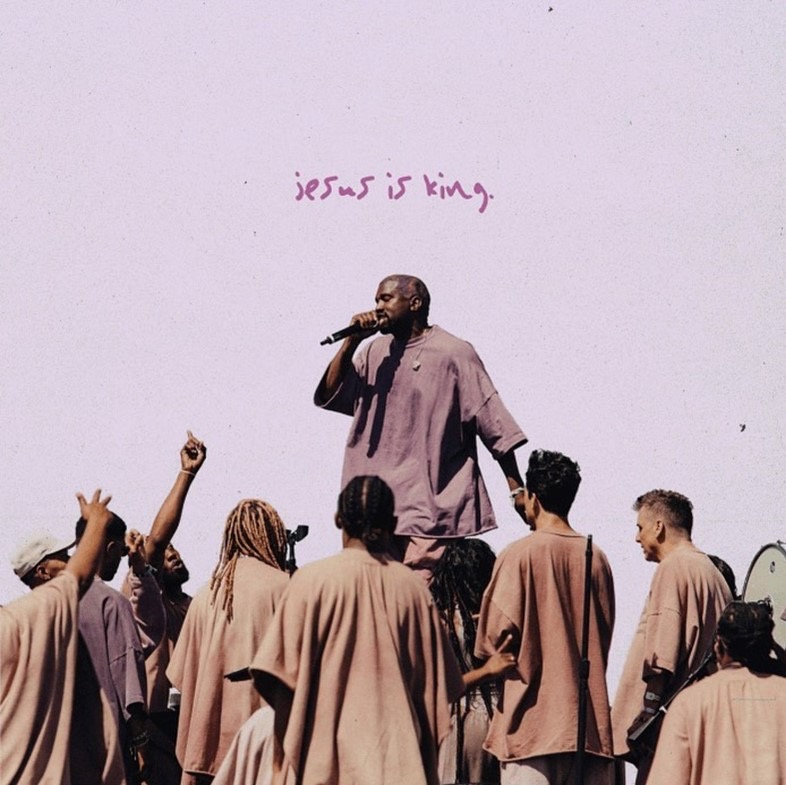An Open Letter to Pastor John MacArthur.
Dear John,
You don’t know me, but I have been aware of you for years as a well-known Evangelical pastor, radio personality, and an author. I’ve listened to “Grace to You” and read your fierce defenses against anything you’ve deemed a distraction to the Gospel with appreciation for your convictions, even if not complete agreement with your conclusions. Recently you took aim at what you believe is the most dangerous heresy you’ve ever faced: the growing Christian advocacy for “social justice”. I read your string of posts making the case that the Church is being lured away from the Gospel message and down a road that leads to destruction with great interest and greater disappointment. As an African American pastor who has studied and experienced this issue personally, I believe your post, and the Statement on Social Justice launched in tandem with it, are the actual dangers to the Church in this moment. I have taken the time to respond with as much detail as I can because I, too, love the universal Church, and I also believe in this particular moment she is in danger of falling away from a clear understanding of the Gospel in the United States. We need to talk more and do more about social justice–not less. I’ll explain with specifics.
You wrote:
I am convinced the only long-term solution to every brand of ethnic animus is the gospel of Jesus Christ. In Christ alone are the barriers and dividing walls between people groups broken down, the enmity abolished, and differing cultures and ethnic groups bound together in one new people.The black leaders with whom I ministered during the civil rights movement shared that conviction.
To demonstrate your historic concern and the shared convictions between you and “black leaders,” you invoked your ministry partnership with a leader I respect deeply, Dr. John Perkins. You described experiencing discrimination firsthand, and your awareness of the injustices in our nation. You also acknowledged that the Gospel of Jesus Christ is the solution to resolve “ethnic animus.” What is unclear is how you think we are to apply the Gospel to the social injustices you personally witness. We know your friend’s view through his own writing on the subject.
Justice is any act of reconciliation that restores any part of God’s creation back to its original intent, purpose or image. When I think about justice that way, it doesn’t surprise me at all that God loves it. It includes both the acts of social justice and the restorative justice found on the cross.
― John M. Perkins, Dream with Me: Race, Love, and the Struggle We Must Win
For Perkins, “social justice” and “the cross” go hand in hand. Indeed, he has fought for social justice based on Gospel-based convictions as an outspoken activist, a minister, and an organizer. He founded the Christian Community Development Association (CCDA) to facilitate a holistic Gospel proclamation and demonstration. Would you agree with Dr. Perkins’ assessment and approach to ministry? If not, how are your readers to understand your reference to him in your post? Perkins appears to put forward a drastically different understanding of social justice and the Christian’s responsibility to promote it than you do.
You also inserted your appreciation of the life and legacy of Dr. Martin Luther King, Jr., but King was a pastor who famously rebuked White Evangelicals for criticizing his leadership in the Civil Rights Movement. While he languished in jail, he wrote one of the most compelling letters known in modern times to Christian leaders who castigated him for proclaiming social justice. It is strange to me to value the gains of Dr. King’s activism, and the tragedy of his assassination, yet still criticize those who walk in his legacy to continue exposing injustice today such as the broken criminal justice system, discrimination in hiring policies and cultural bias within the Evangelical Church. Do you think King was wrong for using his pulpit and ministry to protest social injustice? If he asked you for advice about how to write his “I Have a Dream Speech,” would you have told him he should just preach a gospel devoid of social justice? Where would our country be now if he had?
I resonated with the tragic observation you made regarding the painful history of this nation’s systemic injustices that King’s sacrifice confronted:
A hundred years passed before the federal government banned segregation in public places and began in earnest to pass legislation safeguarding the civil rights of all people equally. Until then, freed slaves and their descendants in Southern states were literally relegated by law to the back of the bus and frequently treated with scorn or incivility because of the color of their skin.
Clearly you see that the Civil Rights legislation King fought and died for was a good thing, but why don’t you seem to support the activity of those responsible for it, especially when they were operating from Christian convictions? You were active in ministry in the 1960’s. What did your understanding of the Gospel lead you to say to the White churches that largely supported the unjust status quo? What did it lead you to do? What did you say to politicians, pastors and entrepreneurs in the Church who opposed King’s message of integration while most “Gospel-centered” preachers remained silent? The troubling truth is that the Fundamentalists who opposed King’s integration followed the lead of their founders a generation before. You harshly criticized what you see as the Evangelical Church’s current emphasis on social justice, but what do you think about the Fundamentalist emphasis on social injustice which catechized racism in churches and shaped the worldviews that antagonized efforts of social equality? You seem more concerned with speaking out against advocates for social justice than you are about social injustice they are responding to. The history of your own movement has much to rebuke.
In Doctrine and Race, Mary Beth Swetnam Mathews chronicles the racism that characterized the Fundamentalist Movement from the beginning with striking detail. In one account close to home for me as a pastor in Brooklyn, New York, she recounts a Fundamentalist pastor who announced his plan to segregate his church:
The Reverend William Blackshear, a white Texas native who was the pastor of St. Matthew’s Protestant Episcopal Church in Brooklyn, announced his plan to exclude African Americans from his congregation. The black denominational press (and secular press) immediately seized upon his words as an example of how far astray Christianity was heading in the segregated United States. [Mr.] Kelly Miller [African American journalist] argued that Blackshear was not an outlier but representative of white ministerial racism, stating that “what he did in the open, nine hundred and ninety-nine out of a thousand white ministers believe and practice by overt or covert contrivance.”
One of the striking things about this account is the statement of how widely spread ministers perpetuated injustice. Similar to today, the Black Church (and even the secular press) see the “social injustice plank” in the White Evangelical eye. As Jesus stated in his often quoted (and misinterpreted) teaching on hypocrisy, clear insight to correct another is only possible when you “first take the plank out of your own eye,” (Matthew 7:5). According to Jesus’ principle, until the racist and socially unjust foundations (the “planks”) of the White Evangelical church are acknowledged, it will not be able to see its own hypocrisy. Pastor A.C. Dixon wrote the title and much of the content in The Fundamentals, the published series of essays that gave the Fundamentalist Movement its name. As Evangelicalism is a present-day re-branded version of Fundamentalism, it contains remnants from its founders. Dixon was the proud son of a member of the Ku Klux Klan. His brother, Thomas Dixon, whose book, The Clansman, became the inspiration for the violently racist and revisionist film, Birth of A Nation, and caused the KKK’s resurgence. Dixon stayed true to his racist roots within his ministry. His resistance to the Social Gospel was not solely theological. In Doctrine and Race, Mathews recounts his sermons, and other notable Fundamentalists to demonstrate their approach to race:
In making his case for racial separation, Dixon drew on a classic dichotomy of southern whites: the distinction between political rights and “social privileges.” For such proponents, the ballot was a political right, but equal and integrated accommodations were a “social” concern, one that the US Constitution had no control over. In language that would be echoed by Texas fundamentalist J. Frank Norris and Arkansas Baptist Ben Bogard in 1928, Dixon told his congregation that “a man may demand his political rights, but, if he comes demanding social rights, he will find that what he claims as a right, others regards as a privilege, and if he persists in his demand even privileges are apt to be withdrawn.”
How have you reckoned with the racism in Evangelicalism’s past and present? Racist attitudes openly expressed in the past are gaining traction in the present and the threat of normalized discrimination is on the horizon. The last twelve months alone have exposed that seminaries have discriminated in their placement practices, ignored Black scholarship, alienated Black artists, and caused a quiet exodus of Blacks leaving Evangelical institutions. Are you concerned about the discrimination within Evangelical institutions that harkens back to the origin of Fundamentalism, Dr. MacArthur? It doesn’t seem like it. In fact, you seem to blame people of color for division over race in the Body of Christ when you write:
It is a startling irony that believers from different ethnic groups, now one in Christ, have chosen to divide over ethnicity. They have a true spiritual unity in Christ, which they seem to disdain in favor of fleshly factions.
In light of the examples of discrimination within Evangelical institutions I just gave, I must ask how a commitment to unity can be expected when racism grows dangerously close to policy. As a former student at Bob Jones University (which banned interracial relationships until 2000, only lifting the ban after public pressure), did you ever publicly criticize the sinful policy the way you are pushing back against the idea of social justice initiatives within the Church now? You wrote:
Evangelicalism’s newfound obsession with the notion of “social justice” is a significant shift—and I’m convinced it’s a shift that is moving many people (including some key evangelical leaders) off message, and onto a trajectory that many other movements and denominations have taken before, always with spiritually disastrous results.
I’m confused by the assertion that social justice is a “newfound obsession.” You previously referenced Dr. John Perkins, who has been incorporating social justice in his Gospel-based ministry for decades. Perkins reflects the tradition of a major contingent of Evangelicals who have fought for social justice–the Black Church. The historic Black Church has been a consistent defender of Evangelical faith and social justice for centuries. Mathews, observing the Black church in the 1920’s and 30’s, writes:
For black evangelicals, using the message of Christ to achieve equality was to do justice, and love mercy, so that they could walk humbly with God. The command was thousands of years old, not new, and its interpretation was not an innovative understanding of the gospel for them. It was, for them, the plain truth.
Do you consider your friend Dr. John Perkins and the millions representing the largest Black denominations in the world as “Evangelical”? If so, then how could you ignore our contribution to Evangelicalism and our engagement in social justice issues? If not, why not?
Who have you asked to define what they mean by “social justice”? I ask because your definition is so foreign to me. In one of your posts, you wrote:
“Social justice” (in the world’s usage of that term) entails political ideas that are deemed sophisticated—namely, identity politics, critical race theory, the redistribution of wealth, and other radical or socialist policies. Those ideas were first popularized and propagated in the secular academy, where they are now regarded as received wisdom and have become a dominating part of popular culture. Evangelicals who are chasing the culture are latecomers to the party of those who advocate “social justice.”
Your definition claims our concept of social justice derives from what many of our detractors refer to as cultural Marxism. Terms like “redistribution of wealth” and “radical, socialist policies” are words meant to invoke the red herring of Communist influence. You claim that Evangelicals are “chasing the culture” either knowingly or unknowingly. But is this true?
A basic study of the Scripture reveals the fundamental flaw of attributing Christian concern to social justice. Joe Carter’s recent post on The Gospel Coalition site posted explains the origins of the term and its present use by Evangelicals. Carter writes:
Jesuit priest Luigi Taparelli D’Azeglio coined the term in the 1840’s and based the concept on the teachings of Thomas Aquinas.
D’Azeglio used the term years before the Communist Manifesto was published, widely read, and over fifty years before the Frankfurt School (usually credited with the development of “cultural Marxism”) had developed. In fact, according to Carter, there’s over 125 years between the time Christians first used the term social justice and the way you framed it in your post. Carter adds:
It wasn’t until the 1970s and the publication of John Rawls’s A Theory of Justice that the term became widely associated with liberal secular political philosophy, particularly with changing social institutions.
Most words have a semantic range, being understood differently at various points in history. Are there those who would include the concepts you listed (i.e., “radical socialist policies” and “redistribution of wealth”) in their meaning of “social justice”? Yes, but it is false to lump all of these concepts under use the word. For example, the word “hot” has a wide semantic range. It could mean having a high temperature, involving intense emotions, a description of someone who is attractive or some new trend that is popular, etc. Context determines how to understand the word, and the phrase “social justice” needs context, as well.
In the same post, Carter summarizes Evangelical pastor Tim Keller’s writing on the topic:
As Keller says, when the two Hebrew words tzadeqah and mishpat are tied together—as they are more than three dozen times—the English expression that best conveys the meaning is “social justice.” Social justice, then, would be not only a biblical concept, but also a subset of biblical justice.
For the follower of Jesus, social justice is simply applying the Great Commandment (Matthew 22:37-40) and the Great Requirement (Micah 6:8) to people as well as institutions. You identified social injustice by referencing the history of slavery, segregation and exploitation of African Americans in this country. But what do you suggest as the remedy to present discrimination? You defined social justice in a way most Evangelicals do not, then you rebuke Christians committed to social justice based on your mischaracterization.
Social justice is the legacy of the Church–and more specifically–the Gospel itself. While D’Azeglio is credited with using the term in the 1840’s, Jesus gave him the impetus when Jesus charged his followers to proclaim and demonstrate the kingdom of God “on earth as it is in Heaven,” (Luke 9:2). It should come as no surprise then that the earliest testimony of the church is one in which their witness challenged and changed unjust systems and social structures of the time.
Hardly “latecomers,” Black Evangelicals have been the pillars of the social out-workings of the Gospel. Frankly, social justice made up an intrinsic part of the historic Black Church while White Evangelicals primarily supported the racial status quo through either vocal support or silent consent. W.H. Jernagin, President of the National Baptist Convention, emphasized the Gospel-centric nature of social justice in 1935 (35 years before the “secular academy” would take up the phrase)when he wrote:
Jesus enunciated the doctrine of human brotherhood, social justice, spiritual regeneration, and human transformation.
Lastly, Dr. MacArthur, your misrepresentation of Pastor Thabiti Anyabwile’s Gospel Coalition post reveals an important need to listen and learn from who have been directly impacted by social injustice. You summarized his post by stating “a person’s skin color might automatically require a public expression of repentance.” Anyabwile’s writing reflected on his personal ambivalence over the commemorations of the 50th anniversary of Dr. King’s assassination because many Evangelicals fail to acknowledge and wrestle with the past. He also explicitly contradicted your conclusion when he wrote:
I don’t need all white people to feel guilty about the 1950s and 60s—especially those who weren’t even alive. But I do need all of us to suspect that sin isn’t done working its way through society. I do need all my neighbors—especially my brothers and sisters in Christ—to recognize that no sin has ever been eliminated from the world and certainly not eliminated simply with the passage of time and a willingness of some people to act as if it was never there.
Anyabwile goes on to say that repentance is marked by an acknowledgement of what has happened. Days after publishing this post, he wrote another post expounding on what he meant by repentance. How could you misread his words so drastically? Perhaps it was the assumption that Pastor Anyabwile’s idea of social justice is the same as the secular academy you deride?
Unfortunately, the failure to identify the sins of the Evangelical Church’s past of social injustice has obscured your vision from seeing the need for present correction. Do you see that racial minorities such as Perkins, Anyabwile and many more (including me), experience social injustice in predominantly White, Evangelical churches as frequently as we do in “the world”? Do you see that failure to recognize the Black Church’s historic commitment to orthodoxy and orthopraxy is part of the problem?
A holistic approach to history that takes all factions of the Church into account will support insight into the social justice implications of the Gospel today. Our country is currently fraught by a broken criminal justice system acknowledged by both parties, driving while Black, swimming while Black, going to Starbucks while Black and, yes, even going to seminary while Black–traumatizing and mobilizing the present surge of social justice advocacy in evangelistic spaces. In the meantime, your opposition to such advocacy does little to help the Evangelical Church to live out the Gospel and instead reinforces injustice within Evangelistic spaces as the coordinated “Statement on Social Justice” gathers widespread support.
Fortunately, you are not alone in your passion for protecting the power and truth of the Gospel. There are many of us who share a drive to contend for the faith. That’s why we challenge the Gospel reductionism presented in your posts. Rejecting that Jesus would have something to say about civil rights, or social injustice, dims the glory of God from shining in every facet of the Gospel’s implications; that’s why we challenge this reductionism. We hope, for the sake of the Gospel, that the social justice impetus laid out by our Lord Jesus Christ will mobilize the whole Church to proclaim the whole Gospel in times like these when they are desperately needed. And we hope you join us.
Sincerely,
Rasool Berry
Teaching Pastor
The Bridge Church
















 This weekend marks a milestone in American cinema history that cannot be overstated. The premiere of Black Panther is creating art that celebrates and affirms black faces and spaces on a scale that has NEVER been done before. To understand the significance of this weekend, just type in #BlackPanther on social media and witness the volume of enthusiastic moviegoers decked out in their “Wakandan” best to take in this spectacle. To fully grasp this moment, perspective is needed.
This weekend marks a milestone in American cinema history that cannot be overstated. The premiere of Black Panther is creating art that celebrates and affirms black faces and spaces on a scale that has NEVER been done before. To understand the significance of this weekend, just type in #BlackPanther on social media and witness the volume of enthusiastic moviegoers decked out in their “Wakandan” best to take in this spectacle. To fully grasp this moment, perspective is needed.









